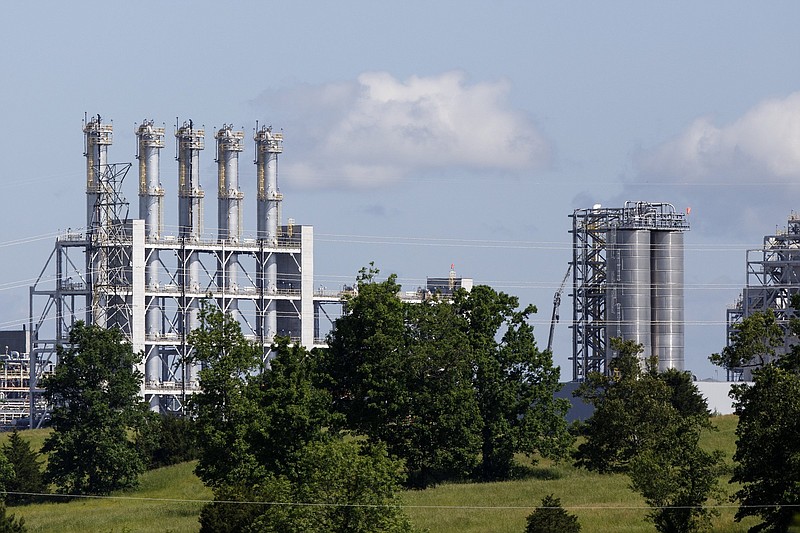A workman who sustained burns after an incident at the Wacker polysilicon plant in Charleston, Tennessee, last year has sued the company and is seeking up to $3 million in damages.
Attorneys for Justin R. Bailey of Walker County, Georgia, said in the lawsuit that the employee of mechanical contractor Jake Marshall LLC was working at the plant and was exposed to hydrochloric acid when an explosion took place on Nov. 13, 2020, in which another worker died.
"One worker received fatal injuries because he was forced to jump from the tower. Four other workers, including [Bailey], were hospitalized after being trapped and exposed to the hydrochloric acid," said the suit.
The suit said Wacker's "negligence was the sole and proximate cause of the explosion and [Bailey's] personal injuries..."
But attorneys for the company said in a court filing that Wacker maintains Bailey's complaint is without merit.
Karen Manardo, Wacker's director of corporate communications, said Friday that the company doesn't comment on litigation that's in process.
The suit said the company for whom Bailey worked had been assigned by Wacker to checking, torquing and re-torquing bolts on a heat exchanger on the fifth floor of a plant building.
Wacker had performed work on this exact area just a few days before, said the suit, and on Nov. 13 "a history of problems with the graphite heads/nozzles would come to haunt the plaintiff and four other workers."
Wacker instructed Jake Marshall to work on the system's bolts knowing that it was operating "hot with ultra-hazardous hydrochloric acid miming under pressure through the system. Wacker made the decision to not 'lock out' or turn off the system," said the suit.
Bailey had donned a chemical suit and respirator as required by Wacker because the work being performed was deemed an ultra-hazardous activity, according to the suit.
But the system's heat exchanger exploded and created a fireball and explosion of hydrochloric acid. While Bailey attempted to flee from the explosion, his suit got caught and subsequently ripped, said the suit.
Bailey's injuries were so severe that he had to be airlifted by helicopter from the plant to Vanderbilt University Medical Center, according to the suit.
"Among his injuries, [Bailey] suffered chemical burns throughout his body and was hospitalized for several days, followed by a subsequent stay at a Nashville rehabilitation facility," legal papers said. After his release from that facility, he continued to be treated by medical specialists regarding the injuries to his eyes, lungs, vocal cords, and skin.
Bailey returned to work a few months after the explosion, but he continues to suffer from the long-term effects of his injuries, which are permanent, said the suit filed by the Chattanooga firm Patrick, Beard, Schulman & Jacoway.
In April, the Wacker plant was cited for a "serious violation" and fined, according to state documents.
The company received a proposed fine of $3,200 for the incident by the Tennessee Department of Labor and Workforce Development's Division of Occupational Safety and Health, or TOSHA.
The suit said the U.S. Chemical Safety Board has opened a federal investigation into the explosion. The suit was originally filed in Bradley County Circuit Court in November but was moved to federal court in Chattanooga this month.
Manardo said the plant, which employs 650 people, is up to 100% in terms of producing polysilicon, which is used in the manufacture of solar panels. A small area of the plant is down for equipment redesign, she said.
In 2016, the company opened the $2.5 billion Bradley County plant, the biggest-ever single manufacturing investment in Southeast Tennessee.
But the Wacker plant has experienced several chemical releases or worker injuries since it opened, though November 2020's was the first to involve a death.
Contact Mike Pare at mpare@timesfreepress.com or 423-757-6318. Follow him on Twitter @MikePareTFP.
